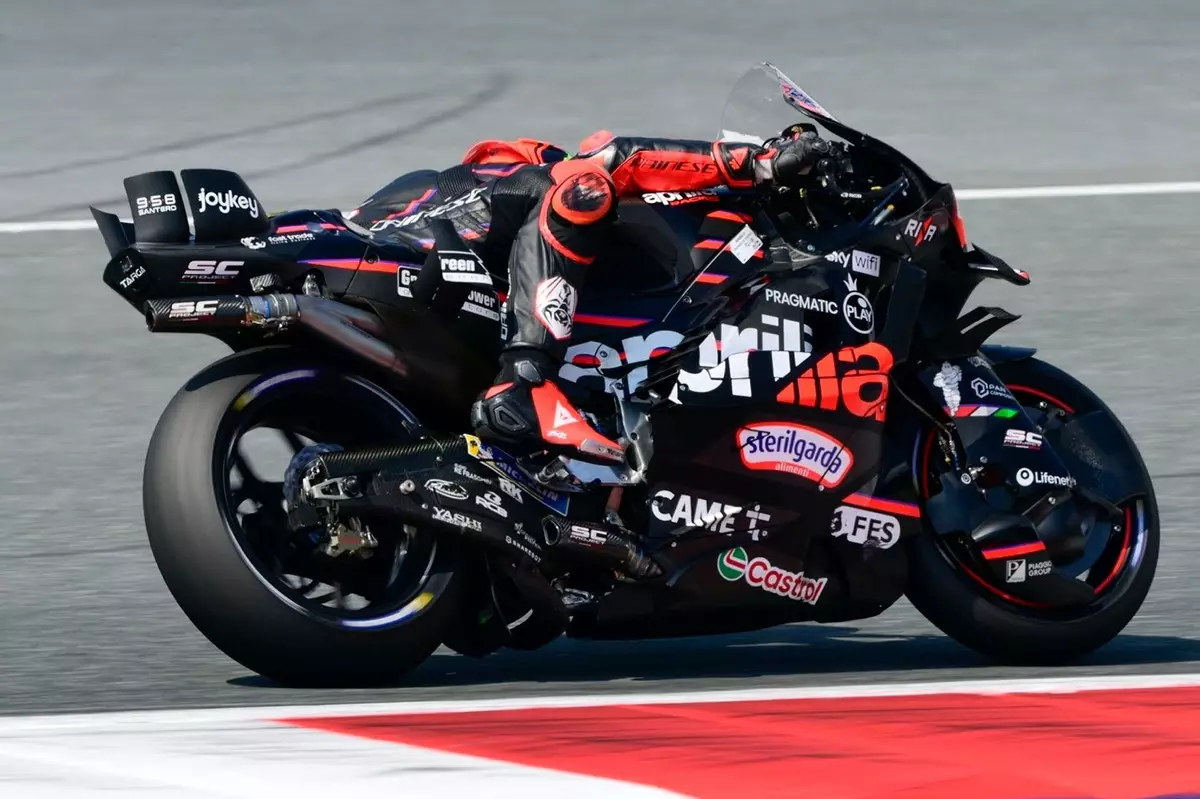In the high-octane world of MotoGP, success is rarely a straightforward journey. Riders like Marco Bezzecchi exemplify that resilience and relentless pursuit of improvement are crucial for transforming setbacks into opportunities. Despite missing out on the podium during the sprint at the Austrian Grand Prix, Bezzecchi remains undeterred, embodying the mindset that setbacks are merely catalysts for growth. His ability to rebound from disappointment—highlighted by his commanding pole position and impressive warm-up performance—serves as a testament to how mental toughness fuels enduring success in competitive sports.
In a sport where margins of victory are often measured in fractions of a second, the capacity to maintain focus, adapt, and push beyond previous limits is what truly defines a champion. Bezzecchi’s attitude underscores an important lesson: setbacks should be viewed as motivators rather than discouragers. His efforts to refine the bike’s setup overnight, coupled with strategic adjustments inspired by past experiences, showcase how innovation and perseverance can bridge the gap between expectation and reality.
Innovation and Adaptability as Catalysts for Winning
One of the most intriguing aspects of Bezzecchi’s performance is the evident evolution in his team’s approach between days—a hallmark of championship-level strategizing. Aprilia’s historical trend of making significant overnight improvements allows the team and rider to stay optimistic despite initial struggles. This adaptive mindset is vital in MotoGP, where track conditions, rider fatigue, and unforeseen mechanical issues demand quick thinking and creative problem-solving.
Taking inspiration from their past successes, such as the dramatic turnaround at the Dutch GP, the team’s ability to analyze previous race data and implement swift improvements sets a precedent for sustained competitiveness. Bezzecchi’s warm-up lap times, edging past the fastest historical lap on this circuit, demonstrate that with targeted adjustments, riders can challenge existing benchmarks. Yet, even with these promising signs, the unpredictable weather forecasts inject an element of chaos, emphasizing that victory often hinges on adaptability as much as raw speed.
The Role of Strategy and Mentality in Weather-Impacted Races
The upcoming race at the Styrian Grand Prix epitomizes the importance of strategic flexibility. Flagging rain and fluctuating track conditions elevate the stakes—those who can read the weather and adapt their tactics will have a distinct advantage. Riders often find themselves at the mercy of Mother Nature, and a well-prepared team must weigh the risks of changing tires, adjusting riding styles, and tempering aggressive overtakes.
Bezzecchi’s cautious optimism regarding his race pace illustrates an understanding that speed alone isn’t enough; strategy, patience, and mental agility are integral. His reflection on the lap times reveals confidence in his capability to improve if circumstances align favorably. Success in this context isn’t solely a product of standing start speeds but a blend of mental resilience, tactical ingenuity, and operational flexibility.
The 2025 season vividly confirms that victory belongs to those willing to continually evolve. Riders like Bezzecchi embody this philosophy—seeing every challenge as an opportunity to learn and grow. When faced with tough conditions, a rider’s mindset and a team’s ability to adapt swiftly often become the decisive factors that separate champions from also-rans. In an arena where skill, technology, and mental strength collide, it’s the relentless pursuit of improvement—and the courage to challenge the status quo—that ultimately unlocks greatness. Only through persistent innovation and unwavering resilience can riders hope to turn the unpredictable tides of race day into glorious triumphs.

